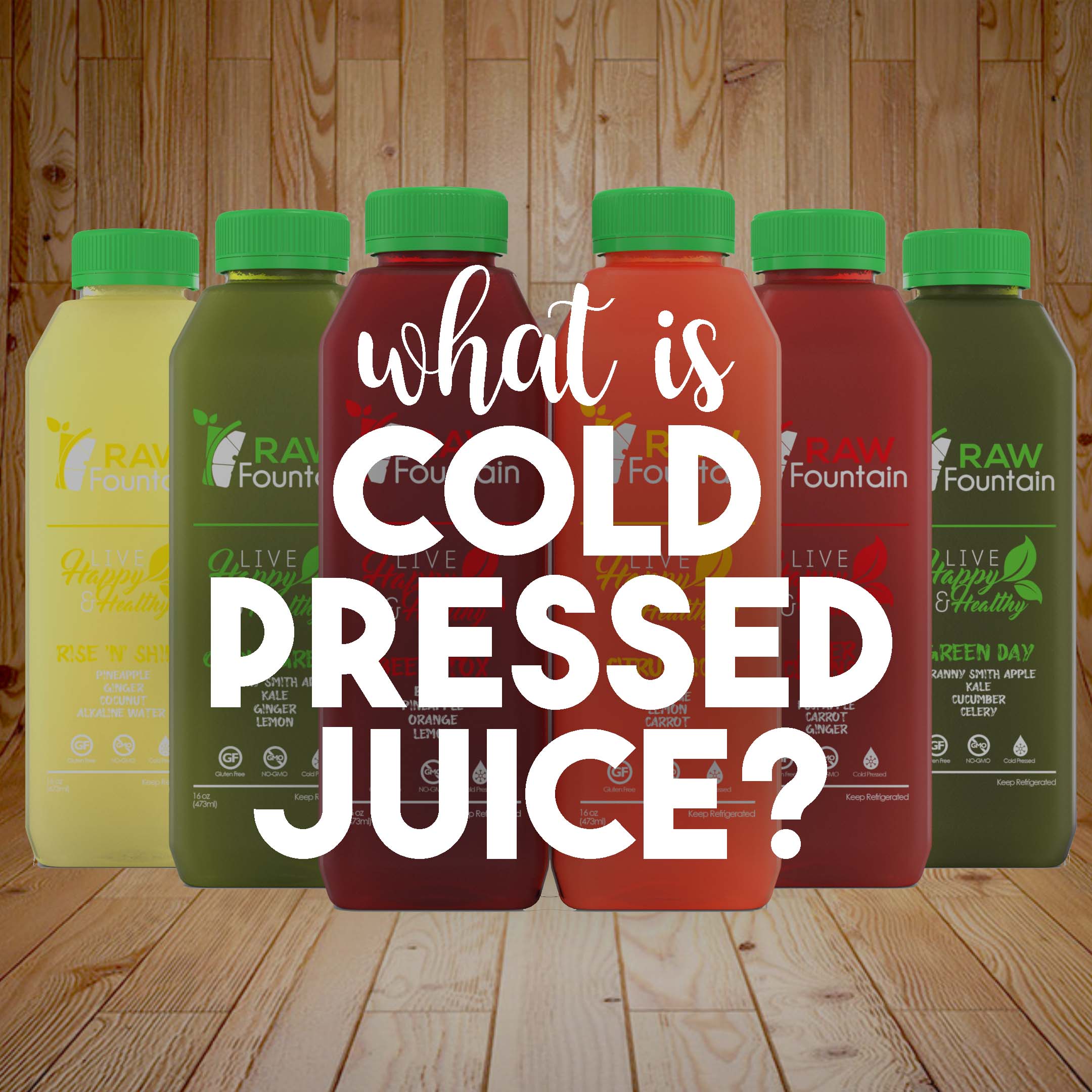Cold-Pressed Juice
Recently, cold-pressed juice has been getting a lot of press (pun intended). Though it has been around for decades, it’s popularity has been bolstered by celebrities and social media. Some think that it is simply another health craze, here today and gone tomorrow. Others swear by it and have cold-pressed juice every day. Well, which is it?
Did you know that over 90% of Americans don’t get enough fruits and vegetables in their daily diets? There are several reasons for this, but one of the most important factors that contribute to this deficiency is a lack of convenience. Most Americans simply do not have enough time to introduce more fruits and vegetables to their diets. They look to fast food options and readymade meals.
One of the main benefits of cold-pressed juice is its convenience. With its increased popularity, you can find raw juice blends everywhere from grocery stores and even shops dedicated solely to selling the delicious blends. If you are considering adding cold-pressed juice to your diet, here are some things that you need to know!
How is Cold Pressed Juice Made?
There are several methods used to create raw juice, some of which you can do at home. However, when it comes to mass manufacturing of cold-pressed juice, the following is the most common method.
Overall, the process is started by applying pressure to the fruits and vegetables against a sieve. The sieve only allows the juice of the fruits and vegetables to pass through it. This juice is concentrated with most of the minerals and nutrients that the food possessed. It is a great way to easily make sure you are hitting your daily nutritional goals.
Cold-pressed juice is made using raw fruits and vegetables. They are first ground into a pulp, so that it is easier to maneuver. The pulp is then exposed to extreme pressure. The pressure causes the fruits and vegetables to lose their juice, which is then collected.
The juice is then bottled for distribution. There are strict rules regarding the distribution of cold-pressed juices. This is in order to protect consumers against bacteria found in improperly bottled juices.
Cold-pressed juices are usually crafted into different delicious blends that have different health benefits. Leafy greens, carrots, berries, and spices such as ginger and turmeric are common ingredients of cold-pressed juices.
You can find the nutritional value of each bottle on its label. These labels are carefully regulated and make it easy for you to know exactly what minerals and nutrients that you are consuming. This is especially helpful if you are trying to increase your consumption of a particular vitamin or mineral.
Should You Drink Cold Pressed Juice?
There is no doubt that cold-pressed juice is a healthy option. It only contains the concentrated juice of raw fruits and vegetables. However, like any good thing, cold-pressed juice should be used in moderation. Here are some issues that you should avoid when it comes to consuming cold-pressed juice:
Over-Consumption
Cold-pressed juices should be a part of a well-balanced diet. The juice should supplement your diet and be consumed with other foods that contain essential substances. They should not replace your daily meals.
Some people choose to participate in raw juice cleanses or have other diet restrictions that feature cold-pressed juices. However, they should not go on for extended periods of time. This will decrease their overall health benefits.
Sugar
Fruit contains naturally occurring sugar that can be detrimental is high-doses. If you have been diagnosed with diseases whose symptoms are exacerbated by increased sugar intake, like diabetes, you should monitor your consumption of cold-pressed juices.
Some blends, especially fruit blends, contain large amounts of sugar. You may experience weight gain if you over-consume cold-pressed juices.
Fiber
Fruits and vegetables contain fiber, a substance needed for digestive health. Digestive health is important for the maintenance of healthy weight and other bodily functions. Cold-pressed juices are not a good source of fiber unless they have been fortified with the substance.
Fiber is found in the pulp or stems of fruits and vegetables. The fiber in these parts of the food cannot pass through the sieve. Therefore, you should not look to cold-pressed juices as a significant source of your daily fiber. You can eat raw fruits and vegetables to satisfy this need!
Conclusion
Consuming cold-pressed juices is an excellent way to make sure that you get your daily recommended intake of nutrients and minerals. They are convenient and can be found at your local grocery store, made at home, or bought in bulk on the internet. Most major cities are also home to juice bars that can whip up fresh cold-pressed juice made-to-order. Grab some today and start your journey to a better you!


